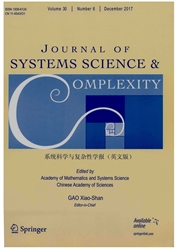

 中文摘要:
中文摘要:
为了降低检测需求变化时的库存成本,给出了一种接受/拒绝方法(阈值).该方法的阈值由报童的超出成本、缺货成本、需求变化概率和需求变化幅度共同决定.通过与指数平滑预测方法的对比实验,证明了所提方法可以帮助报童节约更多的库存成本.此外,通过对所提方法的分析发现,随着需求变化幅度的增加,供应链成员对需求变化的判断越来越同步;随着超出(缺货)成本的增加,报童会越来越倾向于对需求增 长作出过晚(过早)的反应,而对需求减少作出过早(过晚)的反应.这表明供应链成员在与其他供应链成员 进行合作和分享需求信息时应该审慎考虑由不同利润率的产品及不同变化幅度的需求所造成的影响.
 英文摘要:
英文摘要:
To minimize the inventory costs of detecting demand change, an acceptance/rejection method ( threshold) is proposed. The proposed threshold can be identified by the newsvendor based on the excess cost, the shortage cost, the transitional probability of the demand change, and the magnitude of the demand change. Compared with the single exponential smoothing method, it is proved that the proposed method can save many more inventory costs when detecting a step change in demand. By analyzing the proposed method, it shows that as the magnitude of step change increases, the supply chain members turn to synchronously judge a step change, and as excess ( shortage) cost increases, a newsvendor tends to respond slowly (early) to an increase in demand and responds early (slowly) to a decrease in demand. Observations from this study suggest that supply chain members should pay careful attention to different profit-margin products and different magnitude demand changes in cooperating and sharing demand information with others.
 同期刊论文项目
同期刊论文项目
 同项目期刊论文
同项目期刊论文
 期刊信息
期刊信息
